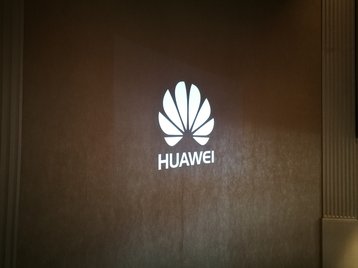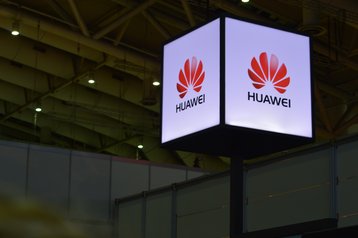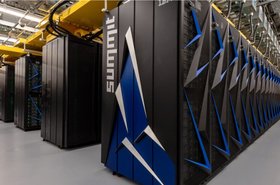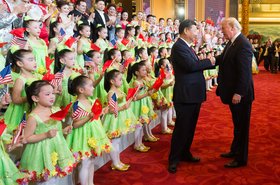The Chinese government has condemned the arrest of Huawei's chief financial officer and deputy chair Meng Wanzhou, threatening “grave consequences” if she is not released.
On December 1, at the US government's request, Canadian authorities detained Meng while she was changing planes in Vancouver. Prosecutors claim that she, and Huawei, conspired to sell sanctioned telecoms equipment to Iran via a shell company. Huawei deny the allegations.
Meng is also the daughter of company founder Ren Zhengfei.
All eyes on Skycom
On Saturday, China summoned Canada's ambassador in Beijing, John McCallum, and warned of “grave consequences” if Meng was not released. The next day, this was followed by a similar summoning of the US ambassador, Terry Branstad.
The official Xinhua news agency said the vice-foreign minister, Le Yucheng, “lodged solemn representations and strong protests” with Branstad over Meng's detention.
The arrest came as tensions between the US and China continue to rise, and after the US government began telling allies not to use Huawei equipment over security concerns. But the US executive branch insist that the arrest was unrelated to the wider trade war.
US Trade Representative Robert Lighthizer said on CBS’ Face the Nation: “This is a criminal justice matter. It is totally separate from anything that I work on or anything that the trade policy people in the administration work on… We have a lot of very big, very important issues. We’ve got serious people working on them, and I don’t think they’ll be affected by this.”
Canada’s prime minister, Justin Trudeau, echoed the statement while speaking at a conference: “I can assure everyone that we are a country [with] an independent judiciary, and they took this decision without any political involvement or interference.”
Instead, prosecutors claim that the arrest is the result of an investigation into whether the Chinese telecommunications giant purposefully violated sanctions against Iran.
Core to the prosecutors' case is the actions of Skycom Tech Co. Ltd, which allegedly did business with Iran between 2009 and 2014. Canadian prosecutor John Gibb-Carsley said in a court hearing on Friday that Meng had misled US banks into thinking that Huawei and Skycom were separate companies when instead, he claims, “Skycom was Huawei... This is the crux, I say, of the alleged fraud.”
Meng previously served on the board for Hong Kong-based company, but her defense claimed that she vacated her seat when Huawei divested from the company. The defense also argued that Iranian sanctions were complex and Skycom’s civilian telecommunications equipment sales likely did not violate any rules.
The hearing to determine whether Meng should be released on bail will continue later today. Should she be extradited to the US, and found guilty, she faces up to 30 years in jail.
Also at stake is whether the US could ban domestic companies from doing business with Huawei - a move which could strike a crippling blow against the world's largest telecoms firm, with Huawei unable to license Android from Google or Qualcomm’s patents in 4G and 5G, along with thousands of other patents and products across its diverse business portfolio.
Meanwhile
Compounding Huawei's troubles, the Japanese government today announced that it would effectively exclude Huawei and ZTE from public procurement, joining similar bans from the US, Australia and New Zealand.
“Government telecommunication infrastructure requirements are essentially locking out the Chinese supplier in critical growth markets,” Morningstar Research equity analyst Mark Cash said, the South China Morning Post reports.
“Additionally, telecom providers without government imposed restrictions may start limiting their usage of Huawei equipment for their 5G network build-outs.”
Huawei has yet to comment on Japan's ban, but has called previous restrictions politically motivated.
In 2012, a US House of Representatives report claimed Huawei posed a “national security threat” to America, and the corporation was restricted from taking part in national infrastructure projects.
Authors also claimed they received “internal Huawei documentation from former Huawei employees showing that Huawei provides special network services to an entity the employee believes to be an elite cyber-warfare unit within the [People’s Liberation Army].
“The documents appear authentic and official Huawei material, and the former employee stated that he received the material as a Huawei employee. These documents suggest once again that Huawei officials may not have been forthcoming when describing the company’s R&D or other activities on behalf of the PLA.”
Huawei denied the claims.





